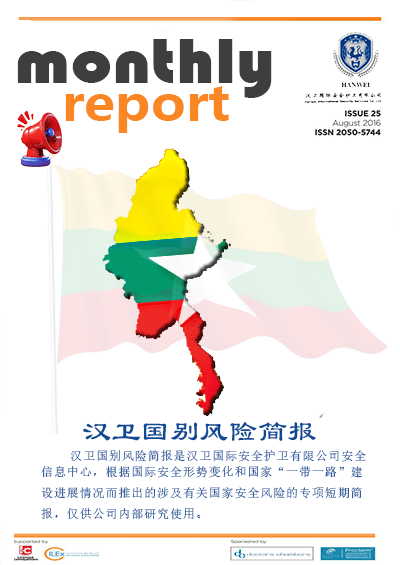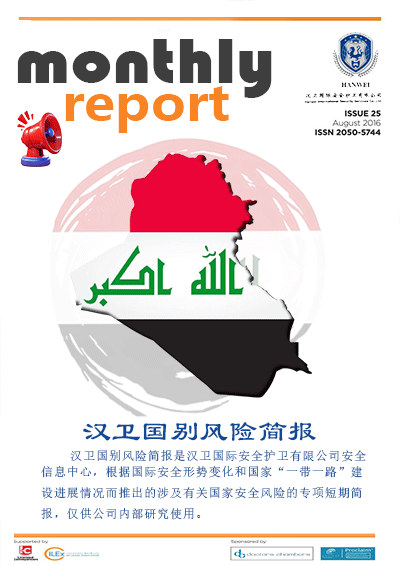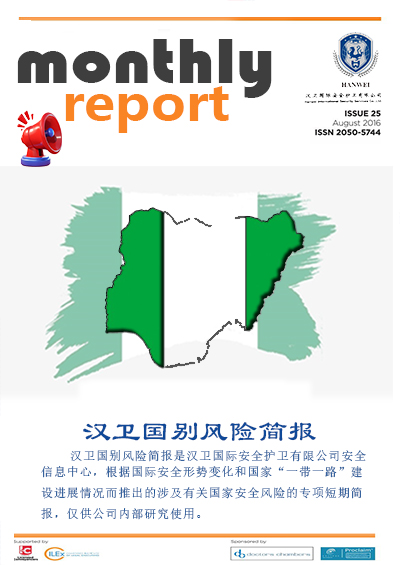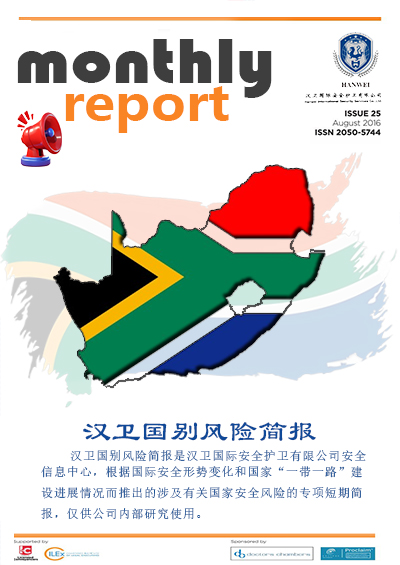Summary of Nigeria's Security Situation in August 2025
Analysis of Nigeria's Social Security Situation in August 2025
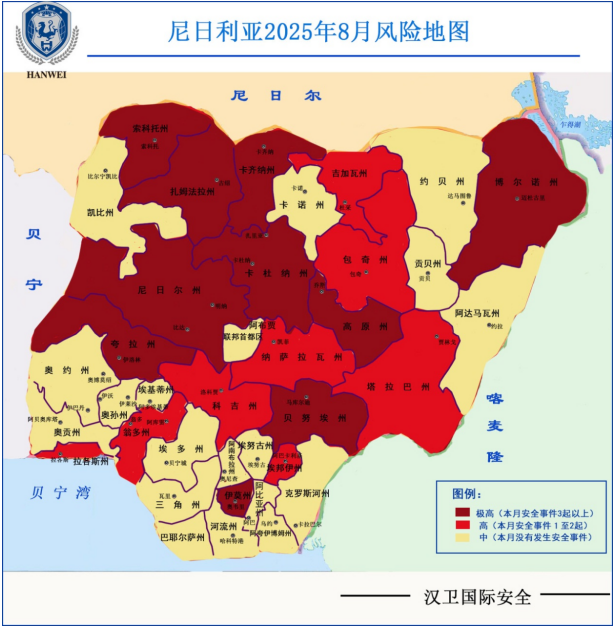
I. Comprehensive Analysis of Security Incidents
29 were armed attacks, accounting for 47% of the total;
14 were armed abductions, accounting for 22%;
11 were public safety incidents, accounting for 18%;
1 was an ethnic conflict, accounting for 1.6%;
6 were military clearance operations, accounting for 9%.
(I) Extremely High Security Risks in North-Central and Central Regions
Zamfara State (north-central Nigeria) had the highest security risk, with 10 security incidents (7 more than the previous month), mainly armed attacks and abductions, resulting in 34 deaths and 250 abductions.
Benue State (central Nigeria) followed, with 9 security incidents (8 more than the previous month), mainly armed attacks, causing 24 deaths.
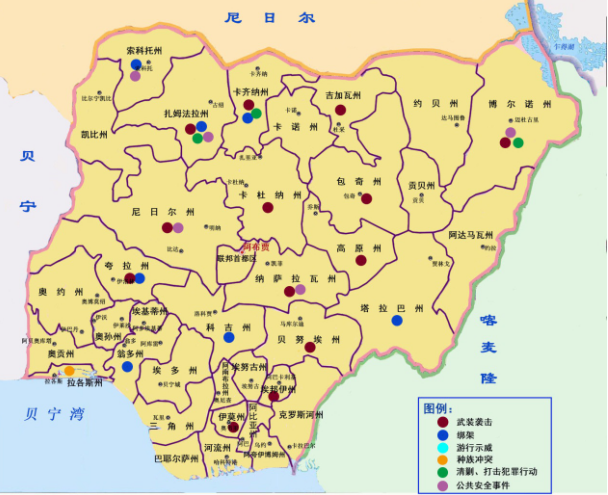
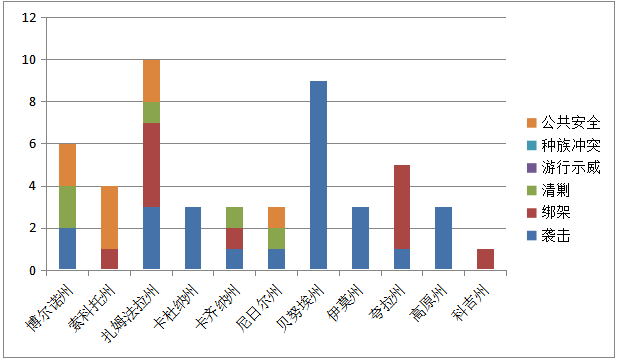
(II) Persistent High Frequency of Armed Attacks and Abductions
The number of incidents increased by 5;
The death toll increased by 45;
The number of abductions increased by 173.
From August 1 to 6: 4 consecutive armed attacks occurred in Benue State, killing 9 people. It is reported that the attacks were retaliation for the reporting of cattle theft by armed elements.
From August 2 to 8: 4 large-scale armed attacks and abductions took place in Zamfara State (northwestern Nigeria), resulting in 24 deaths and at least 141 abductions.
August 18: Armed elements attacked approximately 7 villages in the Mangu Local Government Area of Plateau State, killing 15 people, burning down multiple houses, and looting a large number of livestock.
August 19: A mosque and nearby residential buildings in the Unguwan-Mantau Community of Katsina State (northern Nigeria) were attacked by unidentified armed elements, killing at least 50 people and abducting about 60 others. On the same day, the armed elements broke into the mosque and opened fire on people participating in religious activities, then took dozens of people away from the scene.
August 23: Another armed attack and abduction occurred in the Bukuyum Local Government Area of Zamfara State, with approximately 100 people abducted. On that day, the armed elements, riding motorcycles, split into two groups to break into the village: one group stood guard at the main entrances and exits, while the other abducted villagers and looted livestock.
(III) Multiple China-Related Incidents
Repatriation of 60 Chinese citizens: On August 22, Nigeria's Economic and Financial Crimes Commission (EFCC) stated that Nigeria had repatriated 102 foreign nationals, including 60 Chinese citizens and 39 Filipinos convicted of "cyber terrorism and cyber fraud". In accordance with the plea agreement, the court ruled that these individuals would be repatriated after serving their sentences.
Arrest of 1 Chinese citizen: On August 22, a Chinese citizen was arrested in Anambra State on charges of illegal mining.
Armed dispute involving a Chinese enterprise: On August 28, a conflict broke out between personnel of the Nigeria Security and Civil Defence Corps (NSCDC) and the Nigeria Police Force at a quarry owned by a Chinese enterprise in Ebonyi State, resulting in the death of 1 police officer and injuries to 2 civilians. The conflict originated when an NSCDC police vehicle attempted to enter the quarry and was intercepted by the Civil Defence Corps, leading to a subsequent clash between the two sides.
(IV) Heavy Casualties from Public Safety Incidents
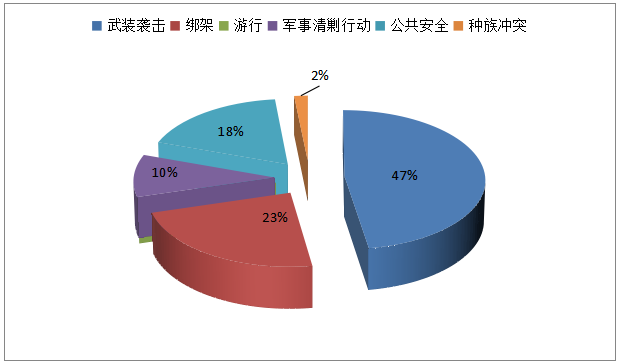
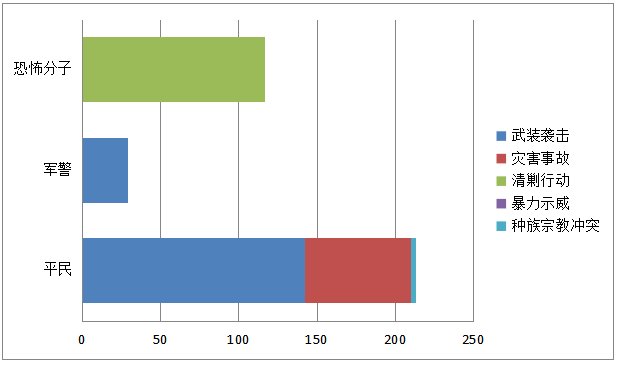
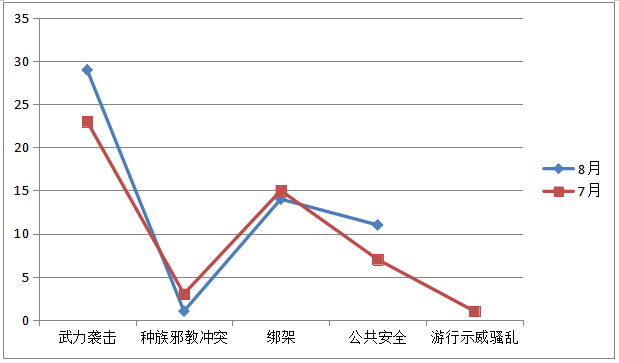
II. Risk Early Warning and Prevention Suggestions
Uploading...
- Implement round-the-clock security services for travel: In remote rural areas of Nigeria, police resources are limited, road infrastructure is poor, and security forces often respond significantly slowly to violent crimes and riot incidents. Therefore, Chinese-funded enterprises and other entities should promptly obtain the latest local security intelligence, conduct specific security assessments of travel destinations, and arrange for security personnel to accompany them during trips.
- Pay attention to flood prevention during the rainy season: Nigeria remained in a period of high flood risk in August, with floods in the central and eastern regions causing heavy casualties. Chinese enterprises and personnel stationed in Nigeria are reminded to monitor disaster developments, check early warning information released by local governments and meteorological departments in a timely manner, and avoid traveling to flood-prone areas. At the same time, make emergency preparations, exercise caution when traveling, improve emergency communication mechanisms, and contact the embassy or local rescue departments immediately in case of emergencies.
- Effectively avoid risks: Most attacks in Nigeria occur in the northeastern and north-central regions, particularly in central Maiduguri (Borno State), roads connecting other major towns, areas bordering Niger, and Zamfara State. Recent security incidents have also occurred frequently in Kaduna State and Abuja. In the event of a terrorist attack, follow official instructions, contact the designated security service provider, and obtain timely assistance. Install video surveillance at residences, shops, warehouses, and living quarters; set up facilities such as trenches, high walls, barbed wire, anti-collision barriers, buffer zones, and alarms at camps; strengthen military and police security forces; and expand the defense scope. At the same time, avoid lingering near locations that may become targets of armed attacks, including government and security force facilities, landmarks, and religious sites.
Northeastern regions of Nigeria;
Religious festival venues;
Ethnically mixed areas;
High-crime areas (especially highways and pirate-active waters in the Gulf of Guinea);
Oil and gas facilities;
Government and military camp facilities;
Diplomatic embassies;
Religious places of worship;
Schools, markets, and refugee camps;
Public transportation hubs and their surrounding areas.

